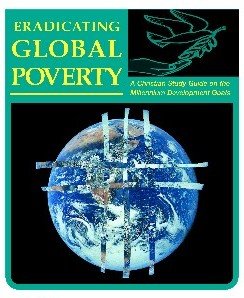 Heating or food?
Heating or food? That is one dilemma that poverty has created for thousands of Americans during the winter. Any increase in energy expenditures for a low-income family reduces the money available to spend on food.
The average monthly heating bill in 2005-2006 rose by more than 40% from the previous year to a whopping $173 per month. This is the equivalent of 19.4% of the income from a full-time, minimum wage job, the Food Research and Action Center (FRAC) estimated in a report published in November 2005. Read report (in .pdf format).
It's hard to tell how high fuel costs will go this coming winter but they apparently will be higher than last winter.
Now, let's take energy vs. food question to the global level.
With the cost of gasoline and other fuels escalating and the concerns about global climate change growing, there is a move to promote increased usage of ethanol as a cheaper energy alternative.
The United Nations has been among the chief advocates of using ethanol and other biofuels to help the global community meet Goal 1 of the UN Millennium Development Goals, which is to eradicate extreme hunger and poverty.
With around 2 billion people, mostly in rural areas of developing countries, still living without electricity or other modern energy services, increased use of so-called bioenergy can help diversify agricultural and forestry activities, improve food security, contribute to sustainable development and mitigate climate change by replacing fossil fuels that produce global warming greenhouse gases," the UN news centre said in a report entitled Biofuels can cut poverty, provide energy and mitigate global climate change -UN
In fact, one can argue that the logic applies to Goal 7, which is to ensure environmental sustainability.
At the surface, it makes sense. Ethanol causes much less pollution than fossil fuels and is cheap to produce because of an abundance of corn, sugar and vegetable matter to make the material.
In some countries like Brazil, ethanol already accounts for nearly one-half of local fuel consumption. And a growing number of countries are turning to ethanol as one solution to deal with the escalating costs of fossil fuels and address global climate change, said Danielle Murray of the Earth Policy Institute in an article entitled Ethanol's potential: Looking Beyond Corn, which was published in June 2005. In the article, Murray discusses many pros and cons of ethanol and biofuel production.
So this is a simple answer: Ethanol is the "good guy."
Or is it?
Les Brown of the Earth Policy Institute thinks not. He argues that the competition for the raw materials to make ethanol will drive up the price of corn and other commodities, causing food prices to rise. The higher cost of food, in turn, would have the greatest impact on the global poor.
"This is shaping up as competition between the 800 million people in the world that own automobiles and the 2 billion low- income people in the world, many of whom are already spending over half their income on food," Brown told reporters on a teleconference in July 2006.
Fluctuations in the sugar market are a harbinger of what could happen to grain prices. Says Brown: "Prices for sugar futures in February hit a 25-year high of nearly 20 cents per pound, on ethanol demand and as big money funds came into the market."
Grain prices have not yet risen as much as those for sugar, but Brown warns that even a small increase could hurt the billions of people who depend on grains for food and the farmers in poor countries who use it for meat, milk and egg production. "There could be a real scramble, not only among sectors, but also among countries for available grain supplies," he told Reuters.
Brown does offer a proposal. Instead of seeking to boost ethanol production, he recommends that global policymakers promote better fuel efficiency for existing vehicles and place a greater emphasis on the manufacture of gasoline-electric hybrids.
And he does not advocate abandoning ethanol altogether. He points to emerging high-tech fuel called cellulosic ethanol made from tough woody plants, such as switchgrass and poplar, that grow on land unfit for farming. Read full Reuters article
[Note: The above illustration comes from the Environment Society of Australia]


